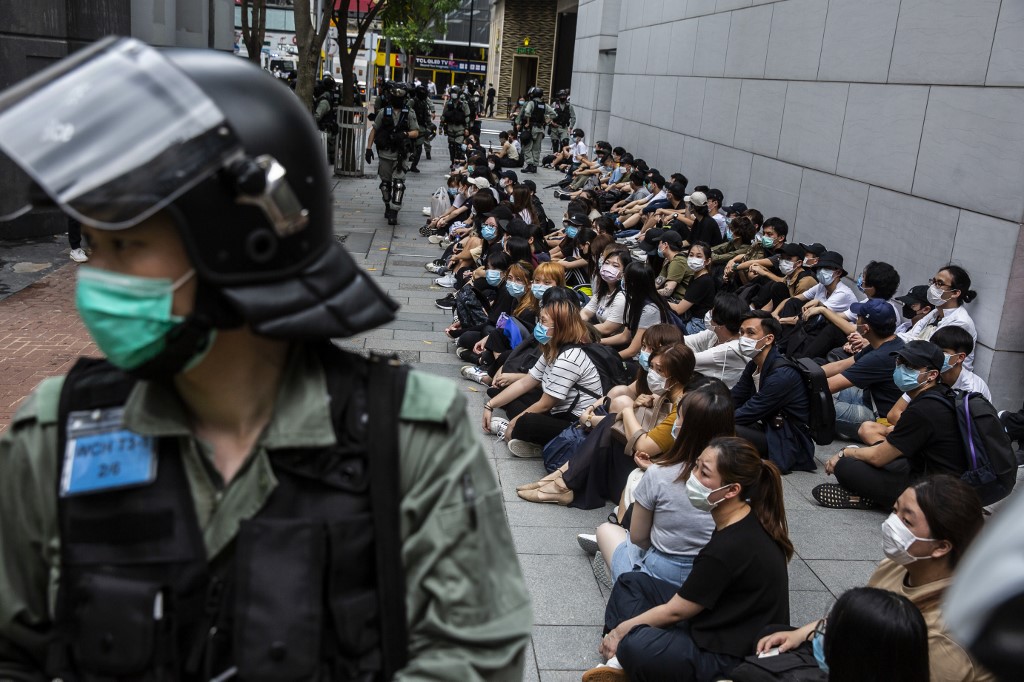
Riot police detain a group of people (R) during a protest in the Causeway Bay district of Hong Kong on May 27, 2020, as the city’s legislature debates over a law that bans insulting China’s national anthem. . (Photo by ISAAC LAWRENCE / AFP)
Hong Kong prosecutors on Wednesday added rioting to existing charges against prominent pro-democracy figures who allegedly joined crowds that broke into the city’s legislature last year, increasing their potential jail sentence to a decade.
The building was the focus for crowds at the start of last year’s huge pro-democracy protests after the city’s unelected leaders tried to fast-track a bill allowing extraditions to the authoritarian mainland.
On July 1 — the day that marks Hong Kong’s return to Chinese rule — the partially-elected legislature was surrounded, broken into and trashed by crowds of protesters who read out a manifesto calling for democracy.
On Wednesday, 12 of those arrested over that protest appeared in court including student leader Anthea Suen, local politician Ventus Lau and actor Gregory Wong.
The group was initially charged with illegally entering the building, an offense that carried up to three months jail time, but prosecutors added rioting, a colonial-era law that carries up to ten years in prison.
Dozens of protesters held banners and chanted “No rioters, only tyranny” as the group left court.
“Everyone who witnessed July 1 last year would understand that there weren’t any rioters, there were only people who have been suppressed by the system for a long time,” Ventus Lau said outside the court.
“So they entered the chamber to express their anger against it.”
Over the last year, around 9,000 people have been arrested and more than 1,700 charged — at least 500 with rioting.
Many of the city’s most prominent pro-democracy figures, including those who advocate non-violence, are now facing a slew of prosecutions.
Leaders of previous pro-democracy protest movements in Hong Kong have also been jailed.
The city’s government has said prosecutors must pursue any breach of the law.
In a separate ruling on Wednesday, Hong Kong’s High Court rejected an appeal against a ban on anyone sentenced to more than three months in prison serving as a legislator for five years.
Hong Kong’s huge pro-democracy protests raged for seven straight months last year, often descending into violent clashes with police.
They restarted in recent weeks after Beijing announced plans to impose a sweeping national security law on the city.
On Tuesday evening — the one-year anniversary of the start of the protests — several thousand people defied a ban on public gatherings during the coronavirus outbreak to march through the island.
They were quickly dispersed by riot police, who arrested more than 50 people.